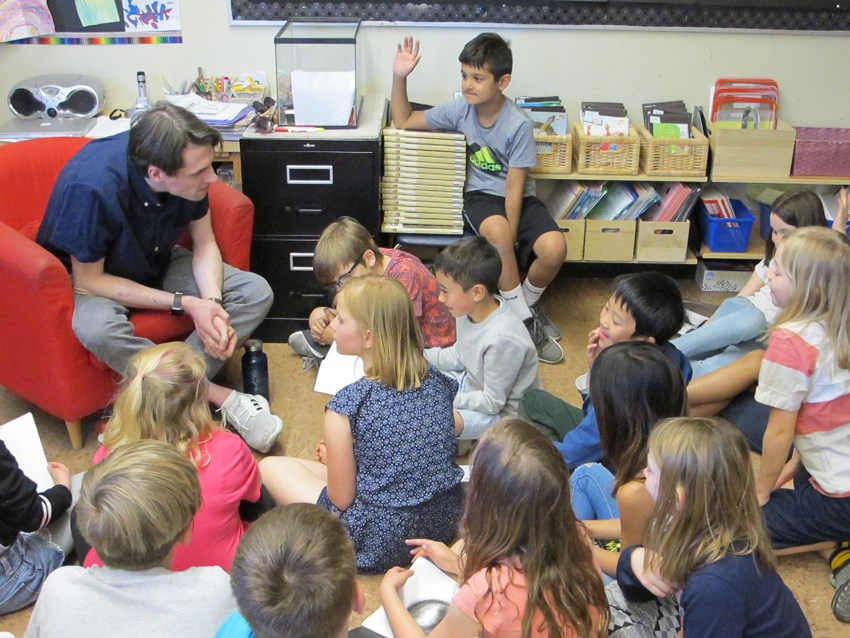Art is the catalyst for a unique school-based project teaching the importance of inclusion in the classroom.
For the past month, schools in Delta and Vancouver have partnered in a pilot project with the Wingspan UBC program.
During this eight-week residency, artists have been co-teaching in host classrooms and participating widely across the schools.
“Our attitudes towards people with disabilities needs a major overhaul and the place to start is in our public schools,” said Dr. Leslie Roman, a professor of educational studies at UBC and visionary for the Wingspan UBC program.
“Wingspan has a national goal of impacting the ways inclusion and accessibility are taught by learning from actual artists with disabilities in classrooms across the country. Today’s students participating in Wingspan UBC are tomorrow’s citizens, voters, leaders and policy-makers bringing with them the knowledge and experience of a more accessible and inclusive society.”
At Ladner Elementary, 94 students in grades 3 to 7 have been working with Richard Harlow, a visually impaired painter, artist, comedian and disability rights’ advocate with the Canadian National Institute for the Blind, who lives and works in Nanaimo.
“In 2010, I was working as an apprentice under professional local painter Richard
Hoadel and attending Emily Carr University when I began having issues with my vision,” Harlow recalled. “First diagnosed as stress, then MS, I underwent unnecessary chemotherapy treatments and became legally blind within six months.”
In May of 2010, he was diagnosed with Lebers hereditary optic neuropathy, an extremely rare condition that affects one in 250,000 people and has no cure.
“I did not pick up a paint brush for seven years. In the meantime, I was made aware of how people with disabilities are treated, including the isolation, poverty, discrimination and ableism,” he said. “From that point forward, I dedicated my life to helping others through activism, politics, volunteering and advocacy.”
Harlow has been teaching students to draw, paint and sculpt during his sessions at the 44th Avenue school, all with a focus on how to make their art inclusive.
“Art is the easiest thing to make fully inclusive to everyone,” he said. “Here we have someone who is blind who is going into classrooms teaching them about art. These students are incredible. This is by far the most powerful thing I have ever been a part of.”
Grade 3 teacher Helen Dockerill said it’s been an amazing opportunity for the children to work with Harlow.
“Heavier topics such as accessibility, discrimination and inclusion are not easy for younger students, but the kids are totally at ease with Richard,” she said. “I’m not an artist, so I’m learning too. It’s neat to see. Richard is somewhat of a superstar in our school now. I feel grateful that we can all be a part of this.”
Delta’s assistant superintendent Nancy Gordon said the school district is honoured to have been chosen to help pilot the Wingspan program.
“We are excited to have artists like Richard Harlow working with our students, and giving them opportunities to learn about people with disabilities, while also exploring creative arts,” said Gordon. “These immersive encounters with our students are a powerful experience for everyone involved.”



